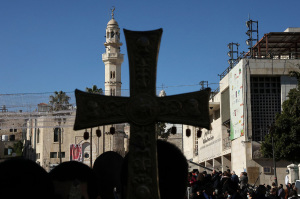MS-13 Gang Designated Transnational Criminals: Feds Target Group Assets
Violent Gang 'Threatens the Welfare and Security of US Citizens,' Says US Treasury Official
The MS-13 gang has been designated as a transnational criminal organization- a first for a U.S. street gang. The organization, which was originated in Los Angeles, has swollen to such a large size that the U.S. Treasury's new distinction was created to help attack their finances. Law enforcement has planned to target them more aggressively and stop the drugs, sex trafficking and violence that they propagate.
The MS-13 gang, also known as Mara Salvatrucha, grew from El Salvadoran refugees attempting to protect themselves from other L.A. gangs in the 1980s to something much bigger. Now, they boast anywhere from 30,000 to 50,000 members in the U.S., Canada, Mexico, and Central America.
Deportation of MS-13 gang members, while standard, has only increased their numbers abroad, which is why the U.S. Treasury Department has come forward with the new label.
"This action positions us to target the associates and financial networks supporting MS-13, and gives law enforcement an additional tool in its efforts to disrupt MS-13's activities, David Cohen, Treasury undersecretary for terrorism and financial intelligence, said in a statement announcing the designation Thursday. Their "violent and dangerous" nature, he added, "directly [threatens] the welfare and security of U.S. citizens."
This nature is affirmed by the gang's motto: "Mata, raba, viola, controla," which, when translated, means "Kill, steal, rape, control." The chilling maxim corresponds to some of the organization's heinous crimes: murder, racketeering, sex and human trafficking, and drugs.
Despite the notorious label achieved by only a few other organizations in the past- Russian-based Brother's Circle, the Italian Camorra, Mexican drug cartel the Zetas, and the Yakuza of Japan- there are those that doubt the new policy. Some even claim it could be harmful to El Salvadorans living in the U.S. who must deal with the stigma.
"During the last 30 years, the El Salvadoran community has grown and has developed from refugees to legal residents to American citizens," Francisco Rivera, the president of the National Central American Roundtable, told The Los Angeles Times. "It's a problem if to be a Salvadoran immigrant is seen as being synonymous with being a criminal. It would stigmatize a community that has suffered a lot."
Others claim that if more resources were directed to rehabilitation and prevention of these criminals, seizing and freezing assets wouldn't be necessary.
It may be too late to analyze past mistakes, however. Targeting MS-13 assets may be the only way to stop the gang from growing, and eventually, starve them of their members.
"History has proven that we can successfully take down organized crime groups when we combine sophisticated investigative techniques with tough street level enforcement, cutting off cash flows, contraband and collaborators to ensure they no longer find safe haven in our communities," John Morton, director of U.S. Immigration and Customs Enforcement, told the International Business Times.





























